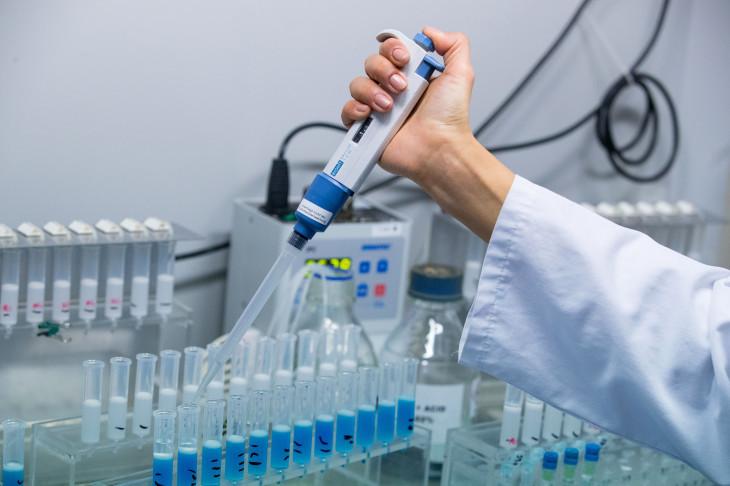COVID-19: How India Manages Testing Kits is a Cause for Concern

Numbers play an important role ina pandemic, helping one understand it and try to curb its spread. To have a correct picture, one needs to know the exact number of patients and testing is a pivotal issue.For extensive testing, there have to be an abundance of kits, especially in a country like India which has a significant population. However, how the country is managing the kits is a cause for concern.
ICMR (Indian Council of Medical Research), the apex biomedical body of the country for COVID-19 management, approves the test kits for COVID-19 testing. It has now been a week that ICMR has approved test kits from private manufacturers, but testing still lags far behind.
On March 25, ICMR added three Government centres aside from NIV (National Institute of Virology): National Institute of Pathology, Pune; National Institute of Cholera and Enteric Diseases, Kolkata and National Aids Research Institute, Pune. But, these newly designated centres, which were to validate testing kits, were reported to have not done any evaluation. This is because the NIV is handling positive samples and it has not been able to send them. Without the samples, the centres cannot evaluate testing kits. As the entire country is under lockdown, the geographical distribution of the centres has definitely posed a logistical barrier.
On its website, ICMR has listed 15 kits that are not US FDA approved, but tested by NIV (Kits that are approved by international regulators need not get evaluated by NIV). However, it has announced that only those kits with 100% sensitivity and 100% specificity are recommended.
ICMR talks about 100% correct identification for acceptance, something that is statistically impossible in biology. Such a stringent criterion is not used by the FDA or the EU certifying testing agency, whose approval ICMR accepts. It virtually rules out all manufacturers of kits except those that fortuitously pass the test! Almost all agencies accept 98% samples passing, and prescribe how many samples have to be tested to ensure quality. So, a 100% pass criterion poses a huge problem.
NIV has not made its method of evaluation public. Its 100% concordance has got local kit manufacturers worried. Pune-based company Mylab hit headlines as the first made in India producer of COVID-19 testing kits with a double 100% concordance. In a report published in The Ken, the author said that two labs in Mumbai reported false positive issues and batch failures with the kits. The report said that when asked about it, Mylab did not respond.
There are a significant number of RT-PCR kit manufacturers in the country and to evaluate their kits, batch after batch, will be tough on ICMR. More rapid test kits will also enter the market soon.
As of March 28, ICMR approved 122 government labs and 29 private labs for testing for the novel coronavirus. All of these approved labs can follow the CDC (Centres for Disease Control) or WHO protocols. But, they need to procure kits and get them validated with positive samples that come from the NIV.
V.Ravi, a clinical virologist at NIMHANS (National Institute of Mental Health and Neurosciences), reportedlysaid: “I am with the government in terms of what it did so far, but times are different now. Going forward, it’s not the right strategy.”
“What is reproducibility in science? It is truth. If a kit is submitted to three different centres and all of them get 95% sensitivity and specificity, that is the truth. There is no such thing as 100%; there is no kit in the world that is like this,” he was quoted saying.
Satyajit Rath, an eminent immunologist and faculty at IISER (Indian Institute of Science Education and Research) Pune, toldNewsClick: “Many of the kits are now ordered from abroad. The suppliers that India has ordered from are also the suppliers that many other COVID-19 affected countries are also ordering from. So, the question arises that when and how many of the kits will arrive India? This has not been made public,” he said.
Rath added that with the country under a lockdown, “how the testing kits that are procured from abroad will be distributed to different parts of the country is a question.” He added that if the ICMR had come up with a plan, it needs to make it public else “apprehension will grow.”
In the case of COVID-19, collecting a sample is also a tricky job. “The sample must be swabbed from the nasopharyngeal area, which means the swab has to be put in through the nose and it has to go deep inside. If a sample is collected only from the nose there may be a misdiagnosis,” he said.
“The antibody testing from blood samples for SARS-CoV-2 is another way to get it done. It is because testing can find out whether the specific antibody is present in a person’s blood sample. It can be usedto identify whether the person has ever got the infection and developed immunity against it,” Rath added.
WHO has also said that to have a correct picture of the spread of COVID-19, expansive testing is needed. For a populous country like India, well-planned testing is required, for both containing the disease and also for containing its resurgence.
Get the latest reports & analysis with people's perspective on Protests, movements & deep analytical videos, discussions of the current affairs in your Telegram app. Subscribe to NewsClick's Telegram channel & get Real-Time updates on stories, as they get published on our website.
























